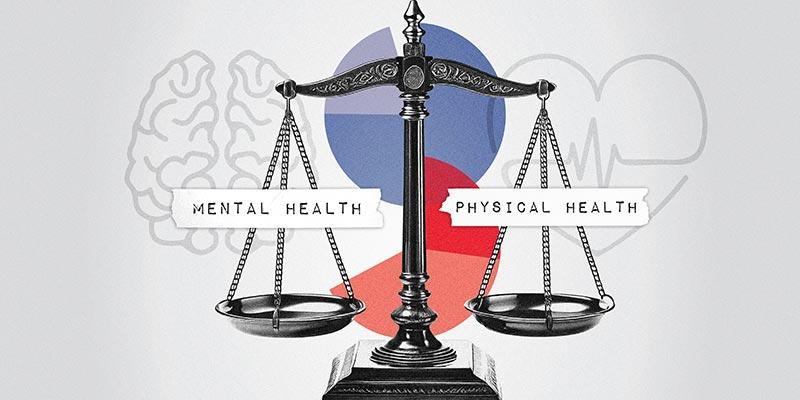Editor's Note: This research was conducted in partnership with West Health, a family of nonprofit and nonpartisan organizations focused on healthcare and aging.
WASHINGTON, D.C. -- Seven in 10 Americans say they would prefer that a healthcare provider ask about both their physical and mental health concerns during medical appointments, compared with 28% who say they want to be asked only about physical health, according to a new study by and ║┌┴¤═°. More than three-quarters of women (76%) say they prefer that a healthcare provider ask them about both types of health concerns, compared with 65% of men.
Evidence in the medical community suggests that having primary care physicians work directly in tandem with mental health professionals can lead to better outcomes for patients. The survey results show that most U.S. adults prefer this kind of integrated approach and that many households are likely in need of behavioral healthcare. More than half of Americans (53%) say someone in their household or a close family member has been diagnosed with a mental health condition. Among those who report that someone close to them has been diagnosed, 20% say that condition negatively affects their family’s or household’s daily life “a great deal,” and 39% say “quite a bit.”
The West Health-║┌┴¤═° Survey on Mental Health in America was conducted by web and mail with 2,389 adults aged 18 and older, living in all 50 U.S. states and the District of Columbia, as a part of the .
Two-Thirds of U.S. Adults Have Been Asked About Mental Health by Doctor
Two-thirds of U.S. adults (66%) report that a primary care physician has asked them about their mental health, while 32% say this has never happened. Women are more likely than men to report having been asked about their mental health (71% versus 60%).
Among those who say they would prefer that a doctor ask them about both mental and physical health concerns, 75% say a primary care provider has asked them about their mental health, while 24% have not been asked. For those who would prefer that their doctor ask only about physical care, 45% say a primary care provider has asked them about their mental health.
Most Are Comfortable With Discussing Mental Health With Primary Care Providers
Most Americans (74%) are generally comfortable with bringing up mental health issues with a primary care provider (41% are “very comfortable” and 33% “somewhat comfortable”). Women and men are equally comfortable in discussing these topics, though men are less likely to say they prefer that their doctor ask them about both mental and physical health.
Many Americans See Primary Care Screening, Treating and Referring for Mental Health as Important
Half (51%) of the public says it’s “very important” that primary care providers screen patients for anxiety and depression, and even higher proportions (57% each) say it’s very important that these providers treat patients themselves for these conditions, or refer patients to another doctor.
Women are much more likely than men (61% to 40%) to view screening for anxiety and depression as very important. Similarly, women are more likely to say it is very important that family care doctors treat these mental health conditions themselves as well as make referrals.
Implications
The National Institute of Mental Health reports that more than one in five U.S. adults, or 59.3 million people, were living with a mental illness in 2022, and just over half (51%) received treatment in the prior year. According to a previous West Health-║┌┴¤═° survey, three-quarters of Americans think mental health issues are identified and treated worse than physical health issues, a belief that’s even stronger among adults aged 65 and older. Difficulty in finding providers, affordability and stigma have limited access to care as the prevalence of mental health conditions is increasing.
The data from this study show that the public widely supports moving toward models of care that are more readily accessible, such as integrating mental healthcare into primary care settings. In this model, primary care physicians can identify mental health issues earlier, interact with patients more easily in a comfortable environment, and make referrals when necessary. Primary care physicians frequently serve as the first point of contact for patients navigating the healthcare system and are in a good position to provide initial diagnoses. Research shows that healthcare providers who use a team-based approach to screening, referring and treating mental health conditions are better able to meet their patients’ needs using guideline-recommended primary care practices.
To stay up to date with the latest ║┌┴¤═° ║┌┴¤═° insights and updates, follow us on X .
Learn more about how the works.




